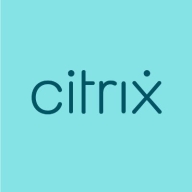

Cisco IOS SSL VPN and Citrix Gateway compete in the secure access solution market. Cisco is preferred for its stability and support, compensating for its high pricing with strong performance, while Citrix is praised for its extensive features and ease of use, justifying its expense.
Features: Cisco IOS SSL VPN offers robust encryption, seamless integration within its ecosystem, and a multifunctional approach including integration with multifactor authentication. Citrix Gateway provides load balancing, web application firewall, and reverse proxy functionalities, along with enhanced security and conditional access, appealing to users seeking flexibility and comprehensive functionality.
Room for Improvement: Cisco IOS SSL VPN could enhance its interface updates, support for radius-based user mapping, and affordability for non-profits. Citrix Gateway needs improvements in multifactor authentication, pricing, ease of configuration, and technical support.
Ease of Deployment and Customer Service: Cisco users value its consistent and skillful support, available locally through Premier Partners. Citrix offers clear documentation and responsive assistance, though its configuration process can be complex.
Pricing and ROI: Cisco IOS SSL VPN justifies its expense due to stability and security, providing solid ROI. Citrix Gateway, seen as a premium product, offers a wide array of features and various licensing options, perceived as costly but aligning with its premium nature.
Citrix Gateway secures our environment from potential threats, which can save substantial financial resources, especially in preventing data breaches or ransomware attacks.
When Cisco first took over, it was a bit more difficult to get support, but they now integrate it without differentiating the support for Linksys versus full-blown Cisco switches.
We contact support regularly, especially for deployments, and they are very responsive.
The support experience has received mixed reviews, as not all support staff possess the necessary technical expertise to handle inquiries effectively.
It integrates well with Cisco's ecosystem, providing flexibility and options to connect to diverse environments.
The solution features high availability, supporting both active-passive and active-active deployments to ensure constant product availability.
I believe that the scalability of Citrix Gateway depends on the project's requirements, as it can vary from simple load balancing to extensive Web Application Firewall implementations.
Linksys can be fairly stable for easy environments, but in more complex network environments, Cisco is definitely a lot more stable.
Cisco IOS SSL VPN is extremely stable.
I find Citrix products to be very stable.
There have been issues with operating systems where newer updates cause problems with backward compatibility.
I believe Cisco could support easier configuration and having tools that allow for easier management and configuration.
At this time it costs 35% more than other solutions.
The main purpose of Citrix Gateway is to enforce the appropriate level of access to the correct user on the proper device under the correct conditions.
For more than one hundred users, it costs about $60 per seat.
I consider Citrix Gateway to be an expensive solution, generally ranging from $5,000 to $15,000 yearly, depending on the model.
The solution is also very scalable, offering up to one hundred licenses for free, and can integrate well with Cisco's ecosystem, such as Cisco ISE and NAC.
The valuable features of Cisco IOS SSL VPN are the ease of use and the speed.
Configuring QoS on Linksys is pretty easy, especially compared to Cisco QoS, which I am certified in, as it helps ensure that the bandwidth for voice or other applications doesn't bleed over into the data links.
The product effectively helps me protect the organization's network from potential threats, thereby securing our environment from hackers and ransomware attacks.
It's easy to scale and easy to implement.
Secure SaaS access is particularly valuable as it ensures that SaaS-based applications are delivered securely.
| Product | Market Share (%) |
|---|---|
| Citrix Gateway | 13.1% |
| Cisco IOS SSL VPN | 9.1% |
| Other | 77.8% |


| Company Size | Count |
|---|---|
| Small Business | 23 |
| Midsize Enterprise | 4 |
| Large Enterprise | 24 |
| Company Size | Count |
|---|---|
| Small Business | 15 |
| Midsize Enterprise | 9 |
| Large Enterprise | 15 |
Citrix Gateway is a customer-managed solution that can be deployed on premises or on any public cloud, such as AWS, Azure, or Google Cloud Platform. Citrix Gateway provides users with secure access and single sign-on to all the virtual, SaaS and web applications they need to be productive.
We monitor all SSL VPN reviews to prevent fraudulent reviews and keep review quality high. We do not post reviews by company employees or direct competitors. We validate each review for authenticity via cross-reference with LinkedIn, and personal follow-up with the reviewer when necessary.